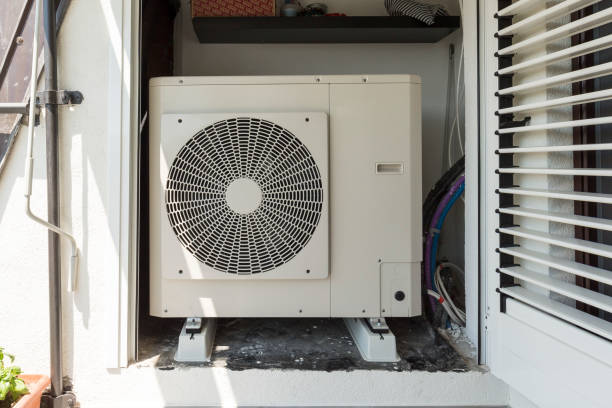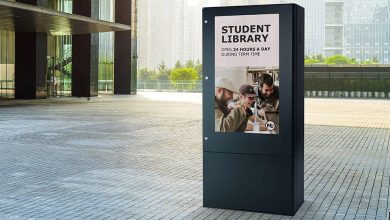Can Heat Pumps Work with Existing Radiators?

When it comes to heating systems, there are two types: traditional gas-fired and electric. Both options have their benefits and drawbacks. For instance, a gas heater has higher energy costs than an electric unit while a central air conditioner doesn’t always work well in certain rooms in homes.
But regardless of whether you choose the traditional option or go for the more modern choice, your radiator will still need to be serviced regularly. When a service call is needed, a technician can replace parts that might be damaged or worn out. This includes things such as the motor, fan, and control box among other components.
However, since heat pumps don’t involve any moving parts, you won’t find replacement parts to fit on the system. If anything goes wrong with your current furnace, you may have a difficult time finding the right part.
How Do Heat Pumps Work with Radiators?
If you’re thinking about installing a new heating system in your home, then it’s important that you know how a heat pump works. This article is designed to explain the basics of this type of system so that you can make the right decision.
A heat pump uses electricity to move warm air from inside the house into an outside unit where it gets cooled down. The cool air is then pumped back through the pipes and vents, and heats up the house. You’ll need to have the correct size of ductwork installed in order to get the best results.
There are two different ways that a heat pump can be used. One method involves using the heat pump to remove the cold air from inside your home, and then transferring it into the attic. Another option is to use the heat pump to transfer the hot air out of the attic, and then bring it back in through the vents.
The main advantage of this type of system is that you won’t need to run a furnace. It also means that you don’t have to worry about high utility bills. But, there are some drawbacks. For example, heat pumps are more expensive than conventional systems.
Can All Types of Heat Pumps Be Used with Radiators?
If you want to know whether you can use a heat pump with your radiator, then you need to understand the differences between the two. Heat pumps work by using electricity to move air. This is why they have different names depending on how much energy that they require. If you don’t have enough power to run a heat pump, then you’ll end up with an electric heater instead.
Radiators are more like traditional heating systems. They rely on gas or oil to create the warmth. So, you won’t be able to use a heat pump with a standard radiator.
However, there are certain models of heat pump that can function as a backup system for your existing boiler or furnace. In these cases, you will still need to install a separate ducting and ventilation system. The best way to find out if you can use a heat pump is to speak to the manufacturer directly.
You should also make sure that you choose one that has been tested by an independent testing agency. You will then know for sure if it’s safe to operate.
How Can You Ensure That Your Heat Pump Works with Your Radiators?
If you have a heat pump, then it’s important to know how to maintain the unit properly. There are many things that you need to look after when you’re using this type of appliance. If you don’t take care of the heating system correctly, then you could end up with problems. For example, you might notice that the temperature inside the house is very low. This can be a sign of a problem with the thermostat.
Another thing that you should watch out for is whether or not the radiator is working properly. You shouldn’t leave it running all day. In fact, you should turn the radiator off when you aren’t actually using the room.
You also need to check the air conditioner and make sure that it is functioning well. A lot of people forget to do this, but you’ll find that your home will stay warmer if you keep the vents open while you sleep at night.
Are There Any Drawbacks to Using a Heat Pump with Radiators?
A heat pump is an air conditioner that uses electricity to remove moisture from the air. The process works by passing cold water through coils inside the unit. This causes the surrounding air to become colder, so the room feels cooler.
There are two main ways to use a heat pump. You can either have the system run continuously throughout the day. Or you can turn the machine off when you leave home. Air Source Heat pump Installers Glasgow aren’t perfect, but they’re definitely better than traditional central heating systems.
When it comes to choosing between a heat pump and other forms of heating, there are pros and cons for each option. However, most people will choose one type over another because of their personal preferences.
You might want to consider a heat pump if you live in an area that gets very hot or cold during the summer months. In these cases, a heat pump is more energy efficient than a conventional radiator system. On the flip side, a heat pump isn’t always suitable for areas with mild winters, since it won’t work well when temperatures are below freezing.
Conclusion
In conclusion, There are many ways to keep your home warm in the winter. The key to choosing between these options is picking something that will work for you and your budget. While central heating systems like oil boilers are great at keeping your whole house warm, they can be expensive to run. A modern heat pump system uses much less energy than a boiler, while being more effective and cheaper to operate. They have no moving parts so there’s nothing for them to break down in case you need servicing.





